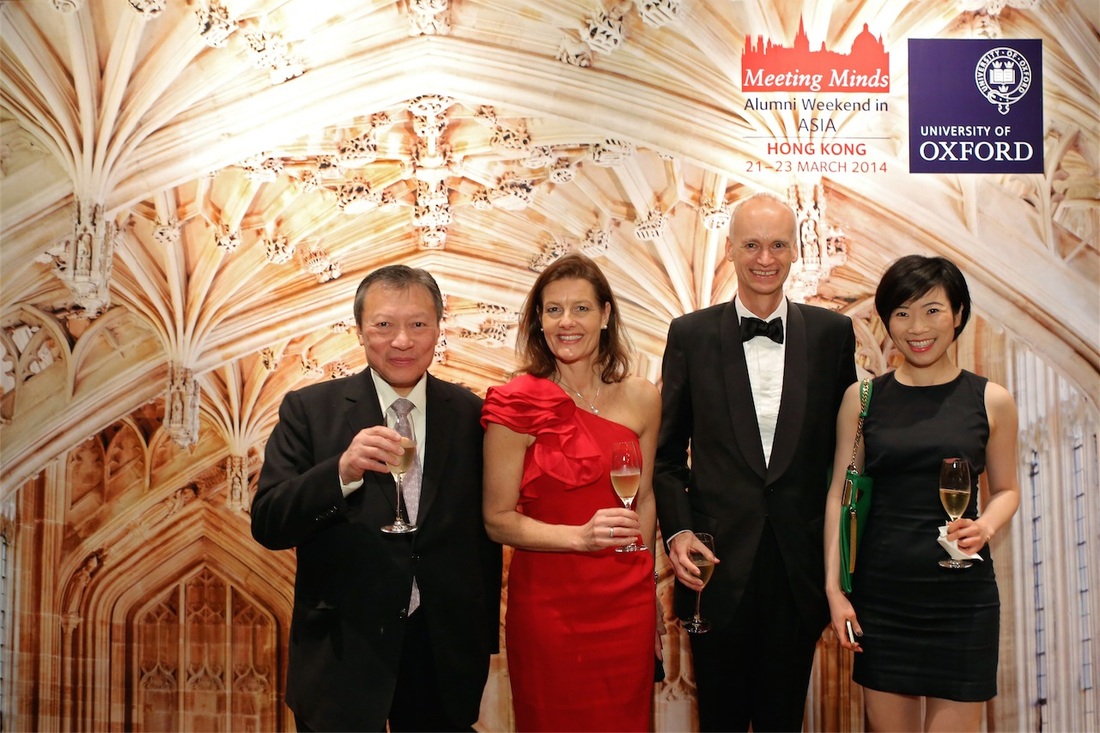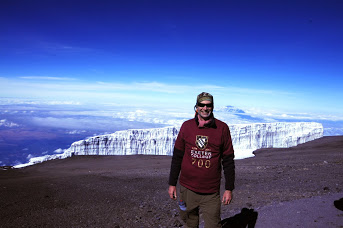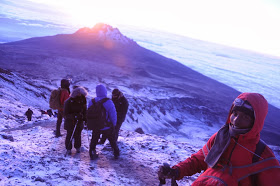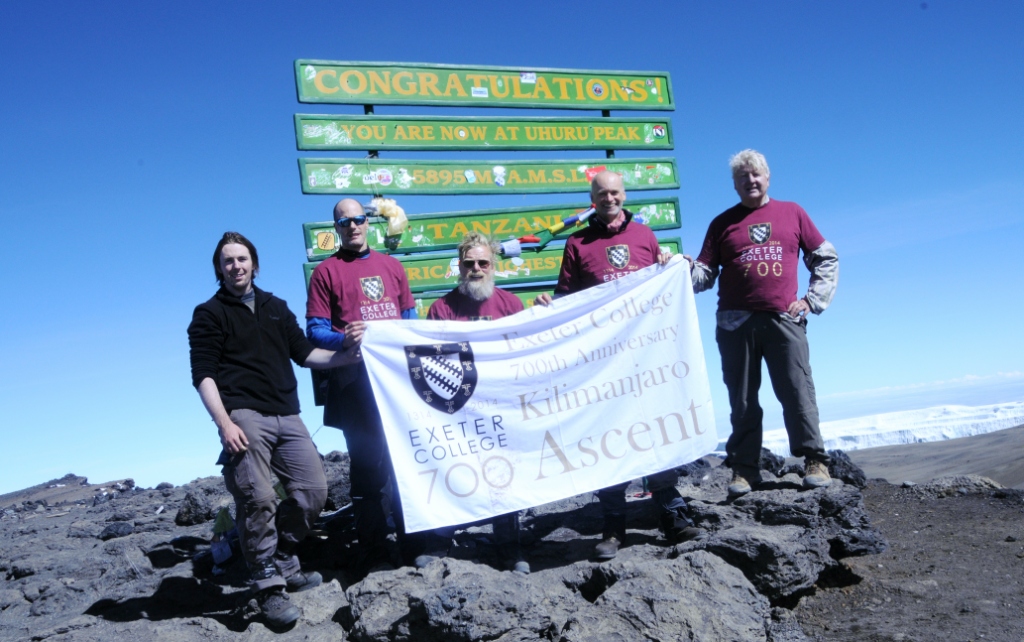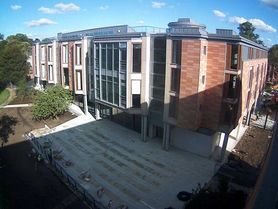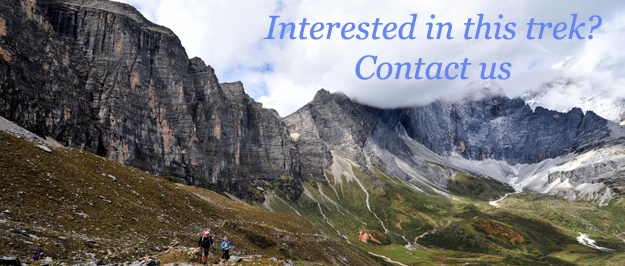Encounters with Alumni from Greater China
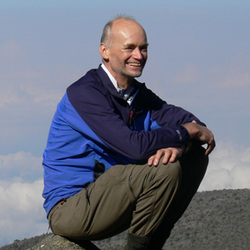
Chris Drake (Exeter 1975) has lived in Asia for over twenty-five years and is currently working in Hong Kong as a legal advisor in a small family office. An active supporter of many charities and non-profit organisations, he is the Chairman of The Asia-Pacific Network for Moral Education and the Association for Living Values Education, a co-founder of The Mother and Child Health and Education Trust and TCK Learning Centre for Migrant Workers in Hong Kong. A long-time supporter of the University of Oxford, he is the Chairman of the University's China Advisory Group and was a key volunteer in helping set up the Oxford China Office. In 2011, he was named as a Distinguished Friend of Oxford. In 2013 he led an alumni expedition to the summit of Mount Kilmanjaro to support Exeter's College's campaign celebrating its 700th anniversary. He plans to lead another fundraising trek to Yunnan Province this September to support the newly established Oxford China Centre.
What are your most cherished memories of Oxford?
A swirling kaleidoscope of memories is filled with moments such as early-morning runs down to the boat-house, gliding along the river in an eight, lazy summer afternoons and brisk wintery bike journeys, dinners in hall, all-nighters writing an essay as a prelude to a brain-polishing tutorial, afternoons of solitude in the library, the occasional lecture, and of course the terror of Finals followed by exuberantly joyful celebrations – and then the slowly-dawning realisation that it is all over!
How did Oxford nurture your talents and interests and shape you as an individual?
The intense open surgery of a tutorial in which you come mind to mind for an hour with a leading expert on a topic that you really don’t know much about is both an extraordinarily democratic privilege (why should he listen to my thoughts on the subject and debate them with me?) and undeniably a wonderful training for many aspects of professional and personal life ahead. The commitment to academic excellence that Oxford embodies and in which it immerses (or occasionally submerges!) its undergraduates sets a high note to aspire to and to that must be added the awesome range of social, sporting, artistic and cultural offerings of which college life is woven. With such a rich and diverse range of experiences taking place in such timeless and beautiful surroundings, I think that a tremendous nurturing of the self happens as much by osmosis as the conscious dedication of time to particular endeavours.
You are a lawyer as well as a leader and volunteer with many non-profit organisations. What motivates you in your engagement with these groups?
That’s not so easy to answer! But I think there is much within the saying that “Man does not live by bread alone” and I have very often found working with less-privileged people to be inspiring and fulfilling. There is perhaps an inherent yearning for something that transcends the self, or to do more than just meet one’s own needs; and there are also many great truths to be learned from and much beauty to be seen in those with less complicated lives than many of us have today. There are many divisions within the global village and an ounce of help from some can make a ton of difference to others; for sure education and learning are keys that can unlock many treasures often otherwise hidden within the individual and are also fundamental to progress and well-being within society.
How do you continue to be connected with Oxford and what do you get from this connection?
What are your most cherished memories of Oxford?
A swirling kaleidoscope of memories is filled with moments such as early-morning runs down to the boat-house, gliding along the river in an eight, lazy summer afternoons and brisk wintery bike journeys, dinners in hall, all-nighters writing an essay as a prelude to a brain-polishing tutorial, afternoons of solitude in the library, the occasional lecture, and of course the terror of Finals followed by exuberantly joyful celebrations – and then the slowly-dawning realisation that it is all over!
How did Oxford nurture your talents and interests and shape you as an individual?
The intense open surgery of a tutorial in which you come mind to mind for an hour with a leading expert on a topic that you really don’t know much about is both an extraordinarily democratic privilege (why should he listen to my thoughts on the subject and debate them with me?) and undeniably a wonderful training for many aspects of professional and personal life ahead. The commitment to academic excellence that Oxford embodies and in which it immerses (or occasionally submerges!) its undergraduates sets a high note to aspire to and to that must be added the awesome range of social, sporting, artistic and cultural offerings of which college life is woven. With such a rich and diverse range of experiences taking place in such timeless and beautiful surroundings, I think that a tremendous nurturing of the self happens as much by osmosis as the conscious dedication of time to particular endeavours.
You are a lawyer as well as a leader and volunteer with many non-profit organisations. What motivates you in your engagement with these groups?
That’s not so easy to answer! But I think there is much within the saying that “Man does not live by bread alone” and I have very often found working with less-privileged people to be inspiring and fulfilling. There is perhaps an inherent yearning for something that transcends the self, or to do more than just meet one’s own needs; and there are also many great truths to be learned from and much beauty to be seen in those with less complicated lives than many of us have today. There are many divisions within the global village and an ounce of help from some can make a ton of difference to others; for sure education and learning are keys that can unlock many treasures often otherwise hidden within the individual and are also fundamental to progress and well-being within society.
How do you continue to be connected with Oxford and what do you get from this connection?
|
A very welcome new-comer in this regard was the recent (and first!) Oxford Alumni Weekend in Asia which offered the chance for a bird’s eye overview of “the State of the University”, presentations by academics on their recent research, clever witticisms during a debate on Asia, the opportunity to meet and mingle and of course a formal dinner! It’s also been a privilege to be able to engage with some prospective and current students and to think about what Oxford can offer to this part of the world and the many ways in which it can do so. The world faces many enormous and knotty challenges and increasingly it seems that answers are going to have to come from universities so it is essential for Oxford to continue to excel in all it does. I also find it useful to keep reminding myself of one of Oxford’s trademark characteristics: remaining a repository of the best of things traditional while also continuing to innovate and keep learning and un-learning.
|
You climbed up Africa’s tallest mountain, Mount Kilimanjaro, with a team of fellow Exeter alumni in September last year to raise funds for Exeter College to celebrate its 700th anniversary. How did you become involved in this expedition and what was the most challenging and rewarding parts of the climb?
While many journeys do doubtless start with a single step, as the old saying tells us, this one had more prosaic early origins, over tea at the rooftop restaurant at the Ashmolean in Oxford! Perhaps the clear sunny skies above the terrace also were an inspiration but in any event having put forward the idea I found myself committed to it, although not really knowing what it involved. The altitude was the biggest challenge and there is next to nothing you can do about it except keep going, slowly… one foot after the other, one breath at a time in the oxygen-thin air… remembering that you can make it if you just keep going.
|
|
The change in temperature was also something to contend with as we went from equatorial T-shirt-and-shorts jungles on our first day up towards the stunningly beautiful sparseness of the mountain heights with polar temperatures that seemed to creep relentlessly though any number of layers of clothing and into one’s bones! But our long winding climb through the starry night was soon forgotten on finally reaching Kilimanjaro’s surreal glacier-decked volcanic rim and then the summit of Uhuru Peak, many leagues from Oxford and some 5,895 metres or 19,341 feet above sea level.
Fellow Exonian Jintao Liu (2002, Engineering) took this wonderful video of our journey. |
You are leading another adventure, this time in Sichuan in China, across the stunning landscapes of the Tibetan borderlands, to raise funds for the soon to be opened University of Oxford China Centre. Tell us more about this trek and what alumni who are considering joining can expect? What level of fitness do you need to achieve before the trek?
We plan to fly to Shangri-la in northern Yunnan in June 2015 and then drive to the Tibetan settlement of Yading in south-west Sichuan before setting off on the Yading “Kora” Trek. It’s reputed to be an extraordinarily scenic trek, combining spectacular Himalayan mountain splendour with cultural and spiritual interest as our route follows a sacred pilgrimage route for local Tibetans circumambulating three sacred 6,000+ metre peaks sanctified in the 8th century.
|
|
The trip involves seven days of trekking over some high mountain passes, the highest being at 4,700 metres. Our guide says that no previous similar experience is required but one needs to be reasonably fit for the regular ascents and descents during around six hours of hiking each day – and imbued with a spirit of adventure! The local support team will take care of logistics such as putting up tents, cooking and carrying everything except our day packs, leaving us free to make the most of it all.
If any alumni are interested in joining this trek, click here to find out more. Ed |
Why did you choose to support the Oxford China Centre?
As the changes that have been taking place within China over the past few decades continue to unfold, with enormous effects on and implications for others within Asia and beyond, it’s crucial to try to understand, make sense of and work with all that is happening, while also seeing it within its historical and contemporary context.
As the changes that have been taking place within China over the past few decades continue to unfold, with enormous effects on and implications for others within Asia and beyond, it’s crucial to try to understand, make sense of and work with all that is happening, while also seeing it within its historical and contemporary context.
|
Whether one looks at the many positive changes that are to be celebrated and furthered or the various causes of concern where there is more (or something different) to be done, there are many lessons to be learned. Bringing together academics from different disciplines in a dedicated facility for China-related research and teaching, the Oxford China Centre is a powerful statement of recognition of that need and a response to it. No university could expect to build up the necessary depth and breadth of expertise, resources and personnel overnight but Oxford is in the fortunate position of being able to draw on a centuries-long history of engagement with China and various forms of a physical presence there, dating back around a hundred years ago through the Oxford University Press.
|
Do you hike regularly in Hong Kong? Which are your favourite hikes?
Not as regularly or as often as I would like! Living on Hong Kong island, regular trails include going from Wong Nai Chung Reservoir around Violet Hill, over The Twins and down to Stanley as well as following the path from Choi Sai Woo along to Mount Butler, Mount Parker and then towards Tai Tam. On Lantau, the hike from Shek Pik reservoir to Tai O (either along the coast via Fan Lau or over the hills) is a favourite along with Sai Kung sections of the Maclehose Trail while I’d probably give top billing to the spectacular hike along the Pat Sin Leng range from Hok Tau to Plover Cove.
Not as regularly or as often as I would like! Living on Hong Kong island, regular trails include going from Wong Nai Chung Reservoir around Violet Hill, over The Twins and down to Stanley as well as following the path from Choi Sai Woo along to Mount Butler, Mount Parker and then towards Tai Tam. On Lantau, the hike from Shek Pik reservoir to Tai O (either along the coast via Fan Lau or over the hills) is a favourite along with Sai Kung sections of the Maclehose Trail while I’d probably give top billing to the spectacular hike along the Pat Sin Leng range from Hok Tau to Plover Cove.
Interviewed in May 2014

